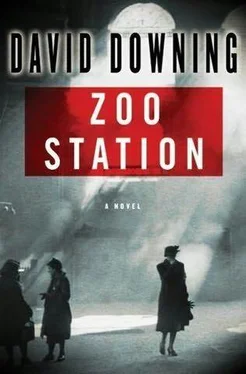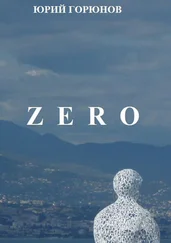David Downing - Zero Station
Здесь есть возможность читать онлайн «David Downing - Zero Station» весь текст электронной книги совершенно бесплатно (целиком полную версию без сокращений). В некоторых случаях можно слушать аудио, скачать через торрент в формате fb2 и присутствует краткое содержание. Жанр: Шпионский детектив, на английском языке. Описание произведения, (предисловие) а так же отзывы посетителей доступны на портале библиотеки ЛибКат.
- Название:Zero Station
- Автор:
- Жанр:
- Год:неизвестен
- ISBN:нет данных
- Рейтинг книги:5 / 5. Голосов: 1
-
Избранное:Добавить в избранное
- Отзывы:
-
Ваша оценка:
- 100
- 1
- 2
- 3
- 4
- 5
Zero Station: краткое содержание, описание и аннотация
Предлагаем к чтению аннотацию, описание, краткое содержание или предисловие (зависит от того, что написал сам автор книги «Zero Station»). Если вы не нашли необходимую информацию о книге — напишите в комментариях, мы постараемся отыскать её.
Zero Station — читать онлайн бесплатно полную книгу (весь текст) целиком
Ниже представлен текст книги, разбитый по страницам. Система сохранения места последней прочитанной страницы, позволяет с удобством читать онлайн бесплатно книгу «Zero Station», без необходимости каждый раз заново искать на чём Вы остановились. Поставьте закладку, и сможете в любой момент перейти на страницу, на которой закончили чтение.
Интервал:
Закладка:
Russell’s ex-brother-in-law was seated at a window table, glass of Riesling in hand, looking dourly out at the street. The dark gray suit added to the sober impression, but that was Thomas. When they’d first met in the mid-20s Russell had thought him the epitome of the humor-less German. Once he had gotten to know him, however, he had realized that Thomas was anything but. Ilse’s brother had a sly, rather anarchic sense of humor, completely lacking in the cruelty which marked much popular German humor. If anything he was the epitome of the decent German, an endangered species if ever there was one.
The pot roast with cream sauce, red cabbage, and mashed potatoes seemed an ideal riposte to the weather, which was now blowing snow flurries past their window. “How’s the business?” Russell asked, as Thomas poured him a glass of wine.
“Good. We’ve got a lot of work, and exports are looking up. The new printers have made a huge difference. You know the World’s Fair in New York this April? It looked for a moment as if we might have a stand there.”
“What happened?”
“It seems the organizers have decided to include a pavilion celebrating pre-Nazi German Art. And йmigrй art. If they do, the government will boycott the Fair.”
“That’s a shame.”
Thomas gave him a wintry smile. “Given the context, it’s hard to be that upset. And there’s always the chance that the Ministry would have refused to let us go. Because of our employment policies.”
Only one firm in Berlin employed more Jews than Schade Printing Works.
“You don’t have room for one more, I suppose?” Russell asked, thinking of Albert Wiesner.
“Not really. Who do you have in mind?”
Russell explained the Wiesners’ situation.
Thomas looked pained. “I have a waiting list of around two hundred already,” he said. “Most of them are relatives of people who already work there.”
Russell thought of pressing him but decided not to. He could hear Albert in his head: “One family’s success is another family’s failure.” “I understand,” he said, and was about to change the subject when the waiter arrived with their meals.
Both men noticed that the portions seemed smaller than usual. “Sign of the times,” Thomas observed.
The roast tasted better than usual, though. “Any chance of things getting better?” Russell asked. Thomas had no more inside information than Russell’s other friends in Berlin-and considerably less than many-but he’d always had a remarkable knack for knowing which way the wind was blowing.
“I don’t know,” was his answer. “Ribbentrop’s off to Warsaw again. They seem to be trying.” He shrugged. “We’ll probably find out more on Monday.”
That was the day of Hitler’s annual speech to the Reichstag commemorating his own accession to the Chancellorship. “I’d forgotten about that,” Russell admitted.
“You’re probably the only person in Europe who has. I think the whole continent’s hanging on it. Will he keep the pressure on, demand more? Or will he take the pressure off? That would be the intelligent move. Act as if he’s satisfied, even if he’s only pausing for breath. But in the long run… It’s hard to see him stopping. He’s like a spinning coin. Once he stops spinning, he’ll fall flat.”
Russell grunted. “Nice.”
They asked after each other’s better halves, both current and former.
“You’re asking me?” Thomas said when Russell enquired after Ilse. “I haven’t see her for weeks. Last time we went over there, well…” He didn’t continue.
“You didn’t have a row?”
“Oh no, nothing like that,” Thomas said, as if rows were something that happened to other people. Which, in his case, they usually were. “I just find Matthias so… oh, I don’t know… complacent? Is that the right word for people who say they fear the worst but live their lives as if there’s bound to be a happy ending?”
“It might be,” Russell agreed. He realized he hadn’t told Thomas about his trip to Cracow, or asked him to take Paul to the match on Sunday, and did so now.
Thomas was happy to take Paul, but bemused by Russell’s choice of Cracow for the “Germany’s Neighbours” series. “Wouldn’t a day trip to Posen have been good enough?” he wanted to know.
Russell had a sudden desire to tell Thomas about Shchepkin-if something went wrong, there would be someone to offer some sort of explanation to Paul and Effi-but held himself back. He would be compromising Thomas, and to what real end? What could go wrong?
Waiting behind another customer for his Friday morning paper, Russell caught sight of the headline: BARCELONA FALLS. On impulse, he turned away. That was one story he didn’t want to read. The Spanish Civil War was over. The good guys had lost. What else was there to say?
As it had gone down so well on his last visit, he bought another ancient Daily Mail at the Alexanderplatz kiosk. This had an article on young English girls collecting stamps, which he knew would interest Ruth and Marthe, and a big piece on the recent loss of the Empire Flying Boat Cavalier, complete with map and diagram, which Paul would love. He saved the best, however, for the very end of the girls’ lesson-a report on a tongue-twisting competition on the BBC. Trying to say “should such a shapeless sash such shabby stitches show” got Ruth giggling so hard she really was in stitches, and Marthe fared little better with “the flesh of freshly fried flying fish.”
The doctor was not at home, so Russell handed the copy of the latest rules governing Jewish emigration to Frau Wiesner. He had collected them the previous day from the British Passport Control Office. “But they ignore their own rules half the time,” the young official had told him bitterly. “You can count on getting a change of clothes past them, but anything else is as likely to be confiscated as not. If your friends have any other way of getting stuff out, they should use it.”
Russell passed on the advice, and watched Frau Wiesner’s heart visibly sink.
“If you need help, ask me,” he said, surprising himself. “I don’t think I’d have any trouble shipping stuff to my family in England.”
Her eyes glowed. “Thank you,” she said, and reached up to kiss him on the cheek.
He journeyed home to pack, stopping off in Alexanderplatz for a late lunch. At least he was pleasing some people. He hadn’t seen Effi since Sunday and the round of mutual accusations which he had so stupidly instigated. They hadn’t had a row-they had even managed two reasonably friendly conversations on the telephone-but he knew she was angry with him, and his non-availability for the Barbarossa sendoff had made things worse.
Paul didn’t seem that much happier with him, despite the promise of a trip the following Sunday to see the cup tie in Dresden. There was something going on, but Paul wasn’t prepared to talk about it, at least not on the telephone.
Frau Heidegger was glad to see him, and sorry his imminent train prevented him from joining her for coffee. Up in his apartment, he threw a few spare clothes into a suitcase, checked that he had his notes for the next article, and headed back down. On the next landing he ran into a smiling McKinley.
“Everything okay?” Russell asked in passing.
“Uh-huh. I’m just waiting for our friend’s letter and… bingo!”
Russell laughed and rattled on down the stairs.
He arrived at the Schlesinger Bahnhof with twenty minutes to spare. The train was already sheltering under the wrought-iron canopy, and he walked down the platform in search of his carriage and seat. As he leaned out the window to watch a train steam in from the east a paper boy thrust an afternoon edition under his nose. The word Barcelona was again prominent, but this time he handed over the pfennigs. As his train gathered speed through Berlin’s industrial suburbs he read the article from start to finish, in all its sad and predictable detail.
Читать дальшеИнтервал:
Закладка:
Похожие книги на «Zero Station»
Представляем Вашему вниманию похожие книги на «Zero Station» списком для выбора. Мы отобрали схожую по названию и смыслу литературу в надежде предоставить читателям больше вариантов отыскать новые, интересные, ещё непрочитанные произведения.
Обсуждение, отзывы о книге «Zero Station» и просто собственные мнения читателей. Оставьте ваши комментарии, напишите, что Вы думаете о произведении, его смысле или главных героях. Укажите что конкретно понравилось, а что нет, и почему Вы так считаете.












